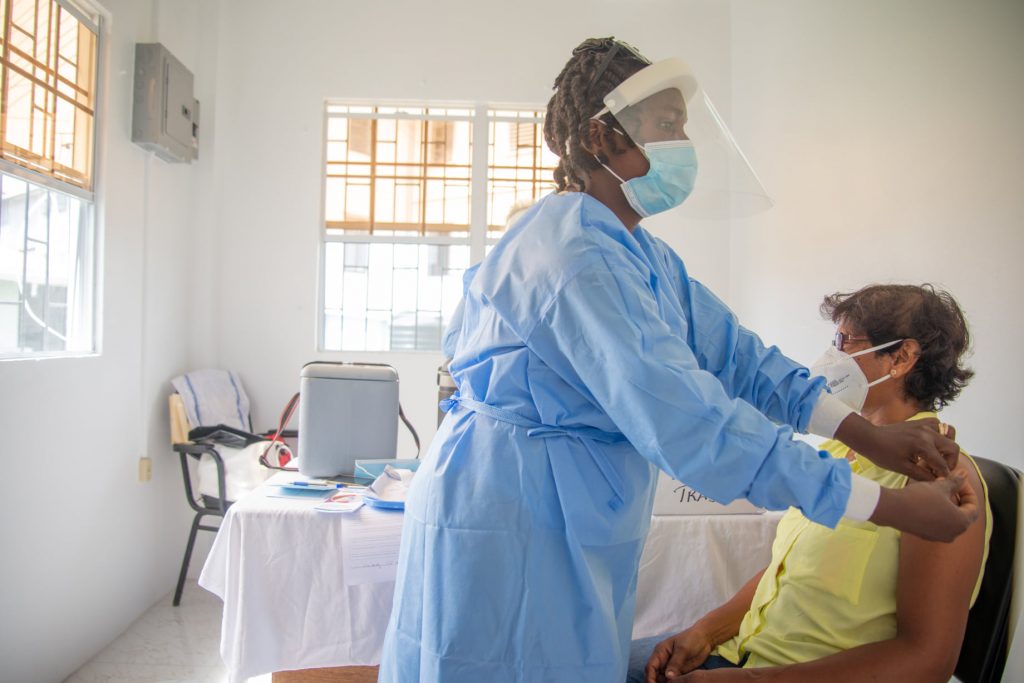

In recent weeks, as Guyana receives more COVID-19 vaccines, the number of individuals vaccinated has increased. Yet, many people remain hesitant because of some eerie questions and concerns.
The Director of Primary Health Care Services at the Ministry of Health, Dr Ertenisa Hamilton, has been integral to the introduction of the COVID-19 vaccine across Guyana since its inception in February. And, in an attempt to edit people and encourage everyone aged 18 and over to be vaccinated, she addresses some of these questions and concerns.

Q: The COVID-19 vaccines appear to be rapidly developed. Are they safe?
Dr. Hamilton: I think what we have to understand is that these vaccines, although newer vaccines, the actual process of vaccine creation has not changed significantly. What we have that is different from the vaccines we would have had before would probably be the two mRNA vaccines – the Pfizer and Moderna.
In the Ebola situation, too, they created a vaccine in a short space of time because there was already a base in place of research that would have contributed to this happening much sooner.
Q: Do you need to take the vaccine if you recovered from COVID-19?
Dr. Hamilton: The thing is, with the first encounter with the SARS-CoV-2 (the virus that causes COVID-19), your body is not building the immunity against it that will prevent you from getting your infected again. With the vaccine, you have a better chance of getting that immunological response that will actually give you the milder form of the disease. If you have been infected, there have been many cases where people are re-infected and would have ended up in hospital. So what you do is you give yourself the advantage of having a better immune response to the disease if you come into contact with it again when you receive the vaccine, even if you are infected.
Q: Will the vaccines infect you with the coronavirus?
Dr. Hamilton: For active immunity, where your body encounters a harmful pathogen or germ, it fights against it, builds up an immune response so that it already has a response any other time after it comes into contact with the pathogen or that harmful organism. So there are two ways in which your body builds up that active immunity; either through exposure to the pathogen or the germ itself through that infection process or through vaccination.
But the thing is, if your body comes into contact (with the pathogen) through infection, it doesn’t mean that you do eventually suffer from the disease; you can get infected but the body fights the infection and so it never develops into a disease. Although the same as the vaccine; Vaccines are biological preparations where you have part or all of the real organism but it is always dead or very diluted and the idea is that it is given to you so that it can trigger a reaction .
You do not have such a thing that can cause the disease. All you get is a size that can trigger a reaction so your body can store the memory so you can fight the particular germ effectively whenever you are in contact with it again. And that’s the same principle there as the COVID-19 vaccine.
Q: Do vaccines have microchips inside the population spy?
Dr. Hamilton: As far as we know, the vaccine does not contain nanoparticles and there are other vaccines that have previously been distributed on a large scale. In Guyana, in 1999, we would have vaccinated the entire country with yellow fever (vaccine) once people were eligible. So it’s not the first time we’ve vaccinated the whole population, it’s the second time around.
Q: Will vaccines cause miscarriages?
Dr. Hamilton: As far as we know, the specific vaccine has not been tested in the pregnant population and so we are not giving it to pregnant women.
These tests are ongoing and not only is it looking at whether you will have a miscarriage, but you have to look at what the effect will be on the fetus. When there is enough safety information, then it will be offered to the population but for now, I cannot say that it is causing miscarriages because they have not done any tests or given it to pregnant women.